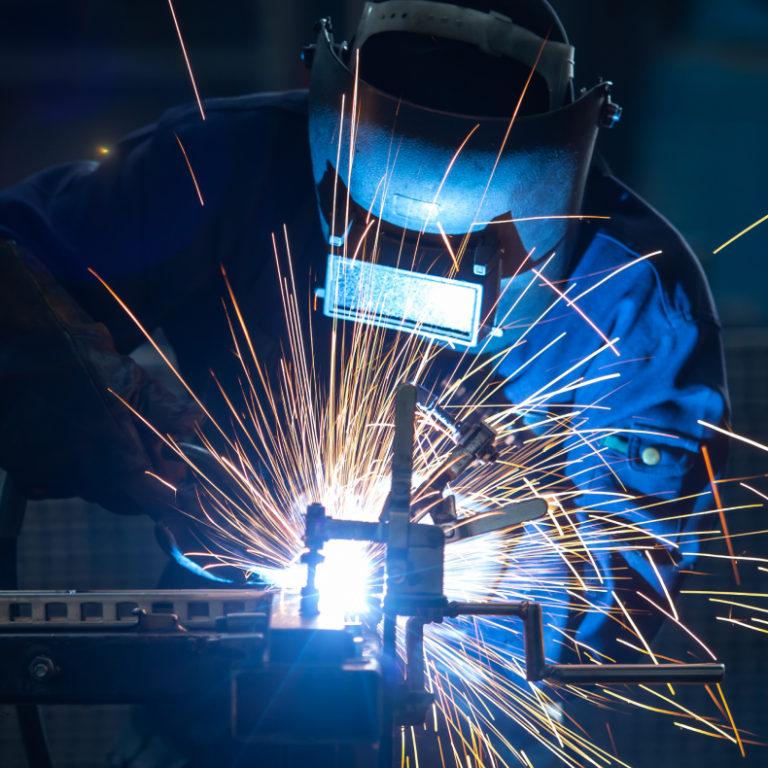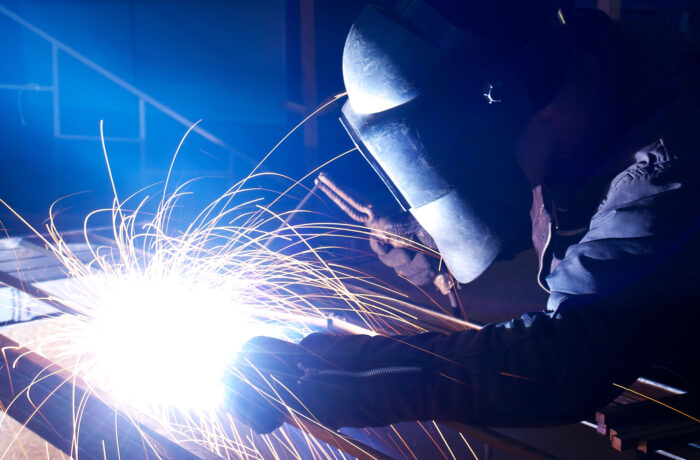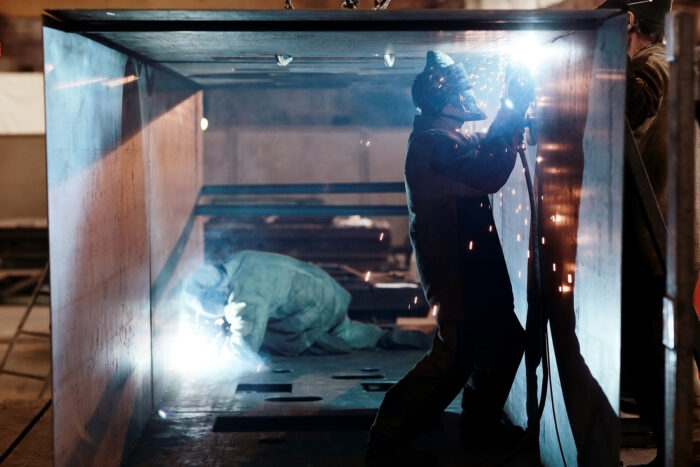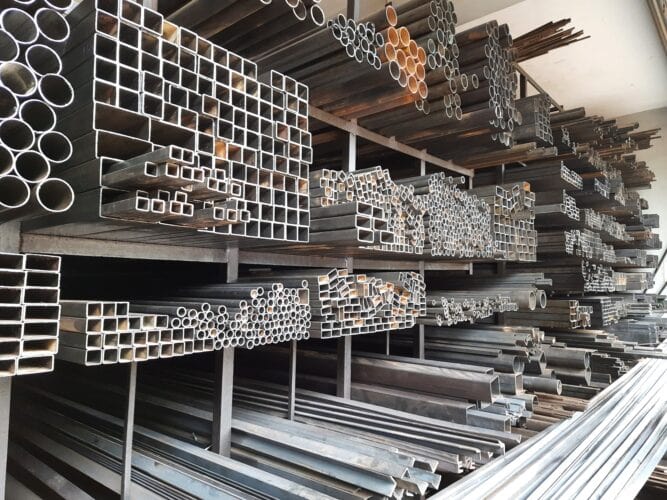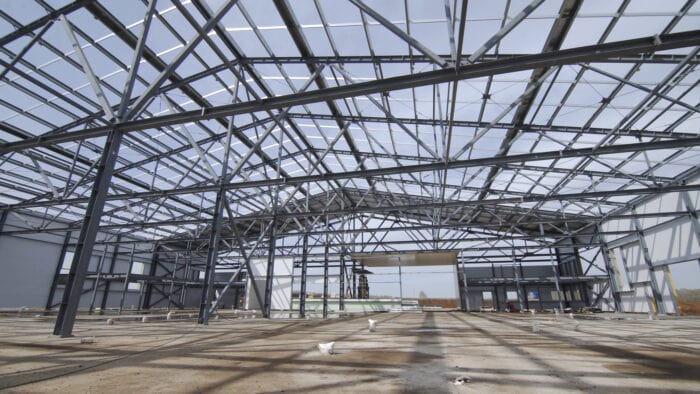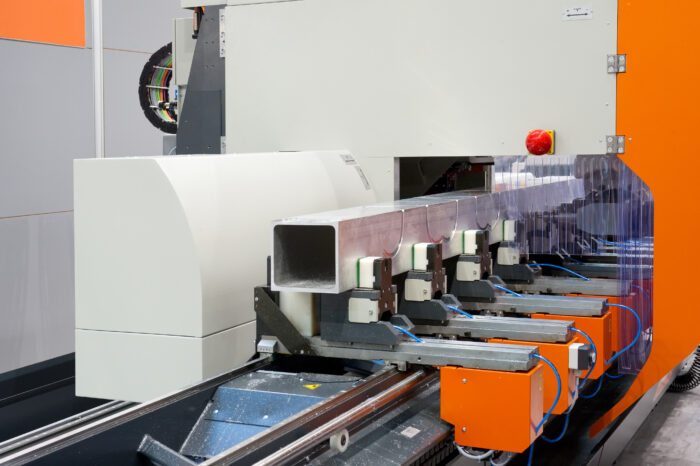With approximately 19,882 Australians employed in metal fabrication, safety is a priority for the industry, including using Personal Protective Equipment (PPE). Metal fabrication involves potential exposure to various hazards, including heat, flames, sharp edges, toxic fumes, noise, and flying debris.
Using PPE is crucial to ensure the safety and well-being of workers, as it helps protect them against these risks. This article will explore the different types of PPE required in fabrication.
PPE used for fabrication processes
Protective eyewear
Safety glasses or goggles are essential to protect against flying debris, dust, and other potential eye hazards in a fabrication environment. Where necessary, special protective lenses may also be used under welding masks to protect the eyes from the intense light produced during welding.
Protective clothing
Protective clothes include flame-resistant jackets, aprons, and coveralls that protect the body from heat, flames, and sparks.
Respirators
Respiratory protective equipment includes respirators that protect against inhaling harmful fumes, gases, and dust that may be generated during fabrication processes.
Helmets or hard hats
Helmets and hard hats protect workers from impact injuries to the head, such as those caused by falling objects in factories. It is the first line of defence for high-risk environments such as those in metal fabrication sites. More advanced helmet designs offer protection from the sides, front and back, enhancing safety.
Gloves
Metal can become hot when exposed to heat sources and cold in other extremes, so protective gloves are important. Gloves protect hands from cuts, burns, and exposure to harmful substances. Different tasks may require different types of gloves, depending on the specific hazards involved.
Hearing protection
Due to the high noise levels often present in fabrication environments, hearing protection such as earplugs or earmuffs is crucial. In some cases, double hearing protection is required to protect the worker from loud noise.
Protective footwear
Steel-capped boots can protect workers from serious injuries if something falls on their feet during the fabrication process.
Welding masks
Welding masks protect the face, neck, and eyes during welding operations, shielding workers from intense light, sparks, and spatter.
Face shields
Full-face shields and safety glasses provide additional protection when cutting, grinding, or chipping. They can prevent eye injuries from flying debris, sparks and other hazardous materials.
Why is PPE necessary in fabrication?

PPE provides necessary defence against workplace hazards such as falling debris, sharp objects, and harmful ultraviolet rays, sparks, and slag produced during welding.
Specific types of PPE, such as eye protection, are particularly vital in the manufacturing environment due to hazards like sawdust, metal fragments, and other airborne particles.
What are the hazards involved in fabrication?
Metal fabrication involves numerous processes such as cutting, bending, welding, and assembling that can pose significant hazards to workers. These hazards, if not properly managed, can result in serious injuries or health issues.
For example, welding can generate intense heat that can cause burns. In a welding environment, combustible dust is at high risk of igniting or exploding, which could cause severe injuries and damage.
Steel and aluminium fabrication processes can also produce harmful fumes, including metal fumes, airborne silica, and chemicals. Prolonged exposure to these substances can lead to respiratory problems and other health issues.
Workshops are often noisy due to heavy machinery and power tools, which can cause hearing loss due to prolonged exposure. Lack of proper training can lead to misunderstandings of safety regulations and increase the risk of accidents. To minimise these risks, it’s crucial to follow safety standards, provide adequate training to workers, and ensure the use of appropriate PPE.
Consider higher forms of risk control first
Despite the effectiveness of PPE, it should still be considered the last resort in the hierarchy of controls. Where possible, it’s better to consider other risk controls such as elimination of the risk, substitution, and engineering or administrative controls.
However, higher-level controls cannot or can’t reasonably minimise risk in many fabrication scenarios. For instance, certain processes inherent to fabrication, like cutting and welding metal structures, may not be eliminated or substituted. Engineering controls, which involve modifying physical aspects of the job, may not always be feasible due to cost or practicality considerations.
In such situations, PPE becomes a critical requirement for safety in the metal fabrication industry. Proper selection, use, and maintenance are crucial to ensuring worker safety. While it may not remove the hazard, PPE can significantly reduce the risk of injury, making it an indispensable part of safety protocols in the fabrication industry.
Who is responsible for ensuring PPE is used?
Under the Work Health and Safety (WHS) Act, safety is everyone’s responsibility, from business owners to employees, each individual is responsible for ensuring safety on the work site, including the sensible use of PPE. Whether handling machinery, cutting or welding metal, health and safety risks must be handled responsibly.
Employers should provide suitable PPE at the workplace, also making sure everything is properly maintained and in good condition. Employees must wear PPE properly and attend training sessions to ensure correct use.
It’s important to minimise risk through proper education, and risk controls. Employers and employees must be educated in the operational requirements of the job, along with relevant safety measures. Training should be provided so employees know how to use and maintain PPE correctly.
Conclusion

PPE is essential to protecting workers from safety risks in the workplace. As experienced metal fabrication professionals in Sydney, Prime Fabrication has stringent safety standards and ensures all workers adhere to correct procedures. We do not take shortcuts when it comes to safety and take all practice steps to minimise risk, including the safe use of PPE on site.
Our fabricated metal products are of the highest quality and standards available to the Australian market. Following stringent quality control processes in metal fabrication, we cater to transport, construction, mining and aviation industries.
Whether you need steel or aluminium fabrication in Sydney, we have the precision, experience and capacity to undertake all your fabrication needs to your project specifications.

